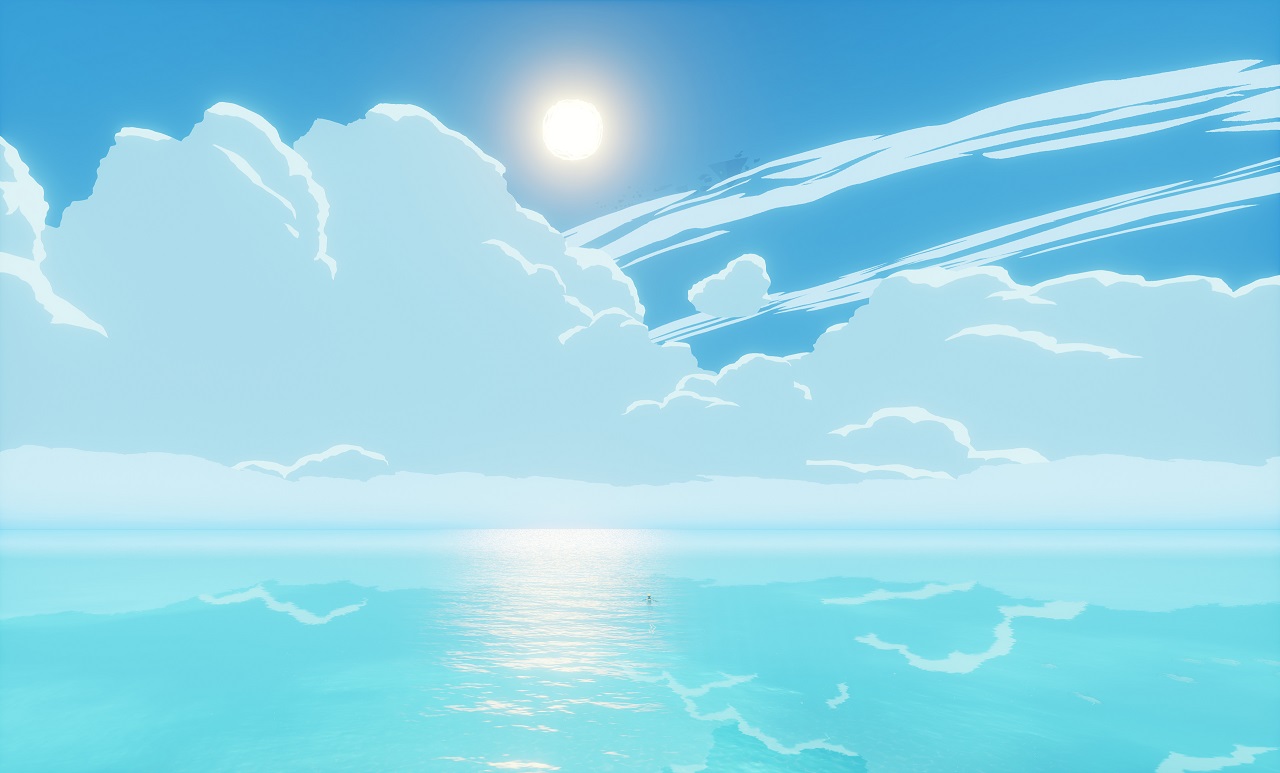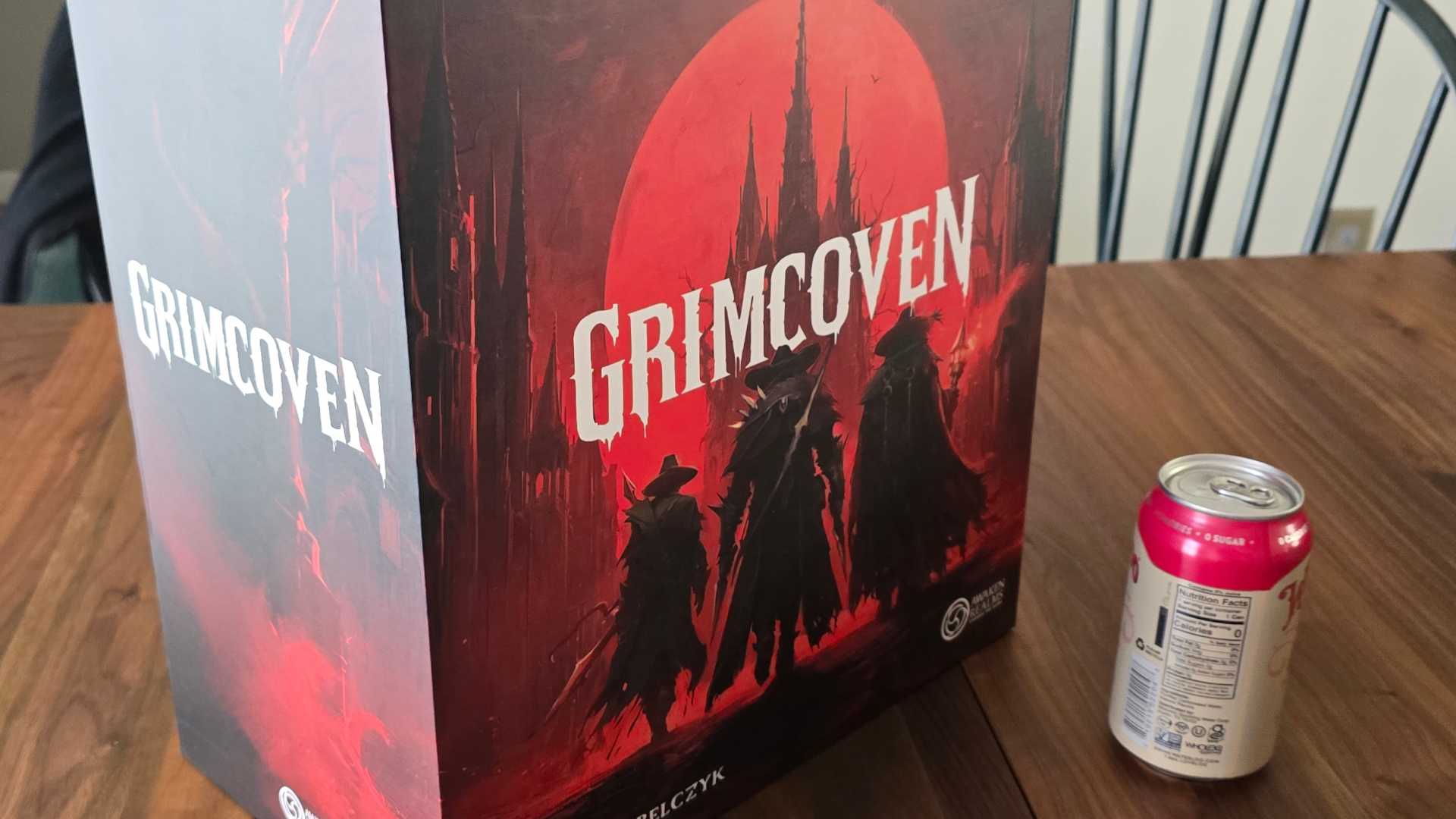GamesRadar+ Verdict
Absolutely gorgeous and a joy to behold, but sticks too close to Journey's formula for its own good.
Pros
- +
Visually stunning
- +
Easy to swim around and explore
- +
Meditative, relaxing pace
Cons
- -
May feel overly familiar to those who have played Journey and Flower
- -
Some minor technical issues
Why you can trust GamesRadar+
It's difficult to discuss Giant Squid's first title Abzu without bringing up either of Thatgamecompany's contemplative PlayStation hits Journey or Flower. It's not an unexpected comparison, as Journey art director Matt Nava's first game with his new studio bears many of the hallmarks of those modern classics. Calling Abzu "Underwater Journey" is painfully reductive, but it's hard to shake the feeling that it's trying to break free from the shadow of its predecessors.
Abzu is an ancient Sumerian word meaning 'deep ocean', describing the space between the underworld and the earth above, and according to mythology, it's where the world's source of fresh water originates. Abzu the game explores a lot of those mystical references, though thanks to its wordless narrative, the interpretation of its events is largely up to you. You play as a little diver person, plopped into the middle of the ocean with the bare minimum of instruction in the form of handful of button prompts. Over the course of its two-hour-or-so story, you'll interact with sea creatures, explore the ocean's depths, and solve some light puzzles on your quest to restore the ocean to its former glory.
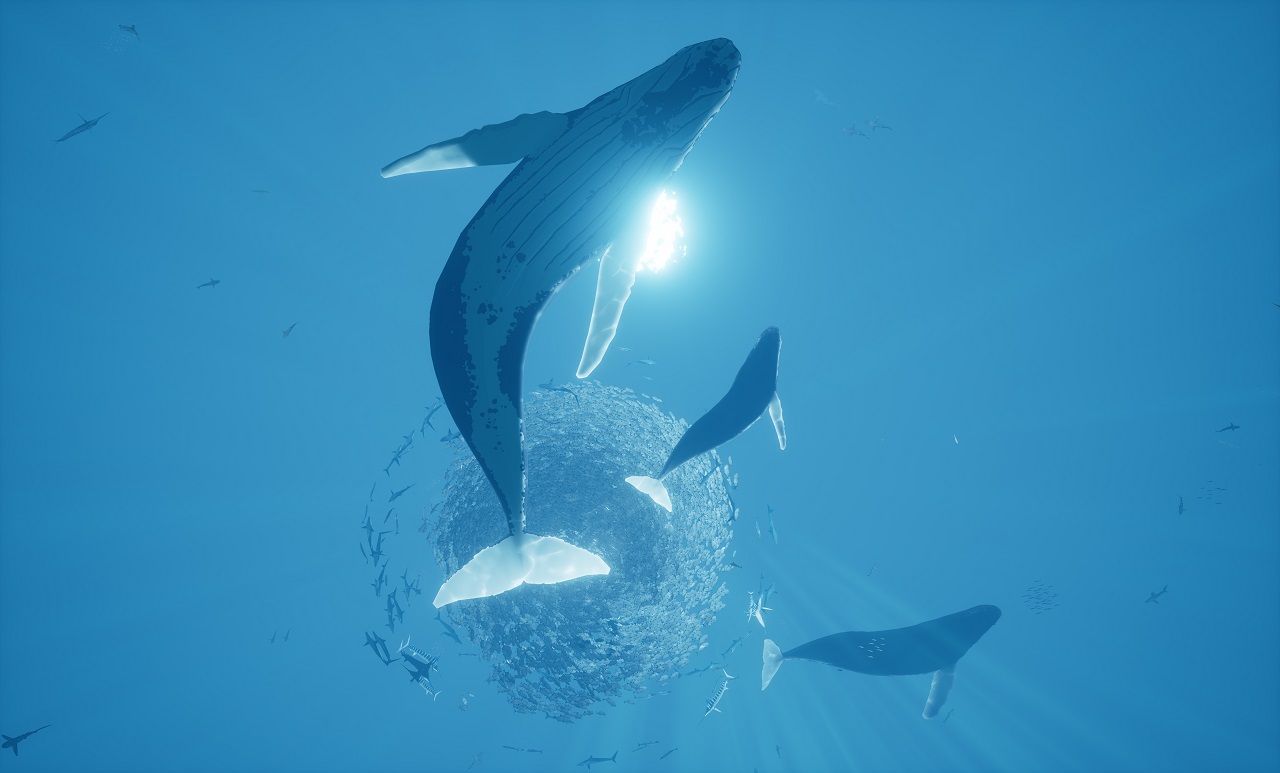
When explained in such simple terms, it doesn't seem like there's a lot going on in Abzu, but its biggest selling point is its simplicity, as it’s smart enough to get out of the way so you can enjoy how beautiful everything looks. Abzu embraces an aesthetic that takes the realism of a deep ocean documentary and takes a turn toward the abstract just enough to make everything on screen pop with the verve of an animated film. Every frame of Abzu, with its combination of angular lines, bright colors, and soft textures, could be turned into a painting, but when it's in motion, the world of Abzu feels alive.
Schools of fish churn and flow through the water, sharks feed on smaller animals, seaweed sways in the current. There's an entire ecosystem at play here, and you can be a passive observer, watching from the distance or at one of several meditation statues, or you can swim right up to them and even latch onto larger fish and let them take you for a swim. Other than a few bouts of slowdown (caused while moving through larger whirlwinds of swimming fish), Abzu is a technical and artistic feast for the senses.
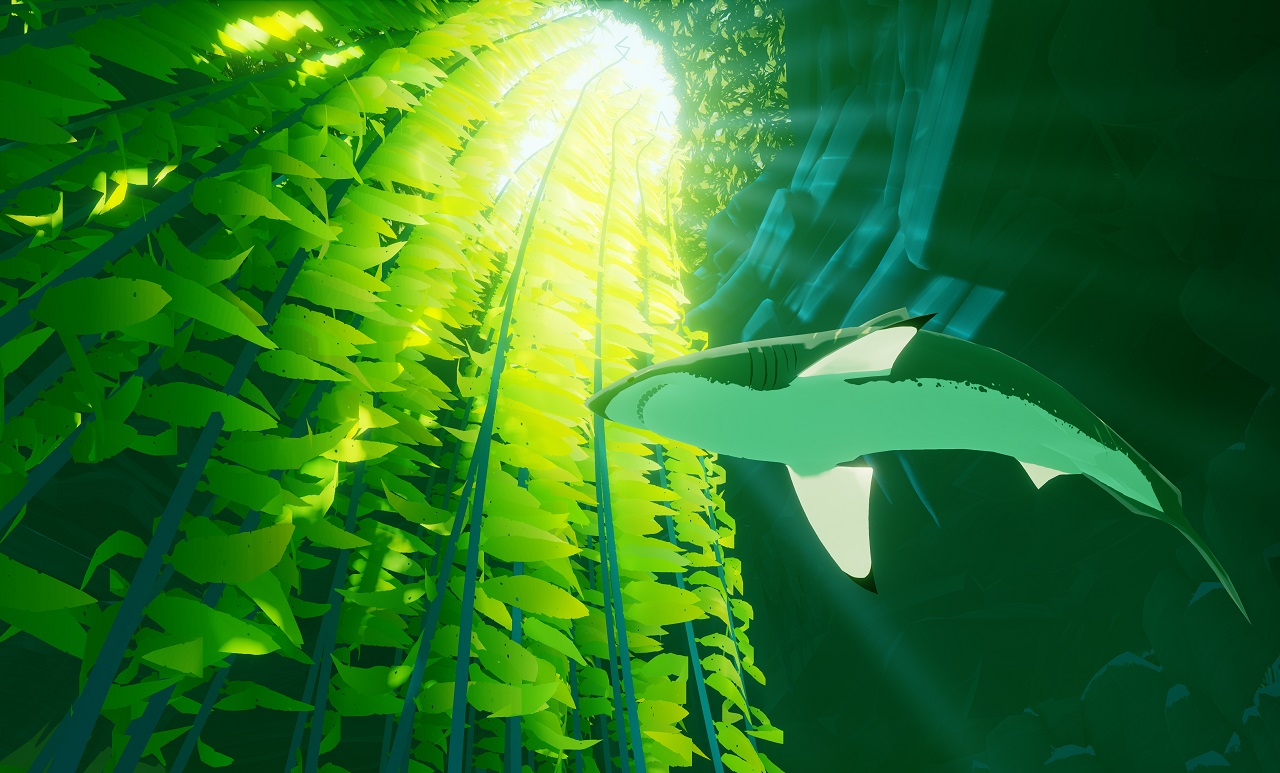
Moving through the water is relatively painless too, as Abzu uses the right trigger to propel forward movement, while the analog stick navigates you up and down. Coupled with the fact that few things can actually hurt you, Abzu's gameplay becomes less about figuring things out or outlasting obstacles, and more about the enjoyment of moving through its space and soaking up the sights. You do have a mission (which you'll glean more and more of as you progress toward the finale) and things definitely start to get a bit weird by the third act. Despite this, there's nothing pressuring you to continue forward other than your own curiosity - there are even a few hidden collectibles strewn around to encourage you to explore off the beaten path. Abzu revels in reflection, with Austin Wintory's score providing a thoughtful soundtrack for your submerged adventures.
But here's the thing: other than the shift from the desert to the sea, so much of what I've written about Abzu could be used to describe Journey, right down to the soundtrack. Abzu funnels you through rooms filled with murals and hieroglyphics that obliquely explain its lore, just like Journey. There are similar sequences where you're automatically propelled through an environment toward the next area (here, you're swimming through underwater currents instead of sliding down sand dunes, but the effect is the same). You can even tap the interact button to make your little diver chirp just like in Journey (but with no online multiplayer, it seems to serve little purpose other than to chat with the occasional mechanical drone you'll find on your travels). It's not just a similar art style or mood that Abzu tries to convey: entire swaths of gameplay seem to be cut whole-cloth from its predecessors.
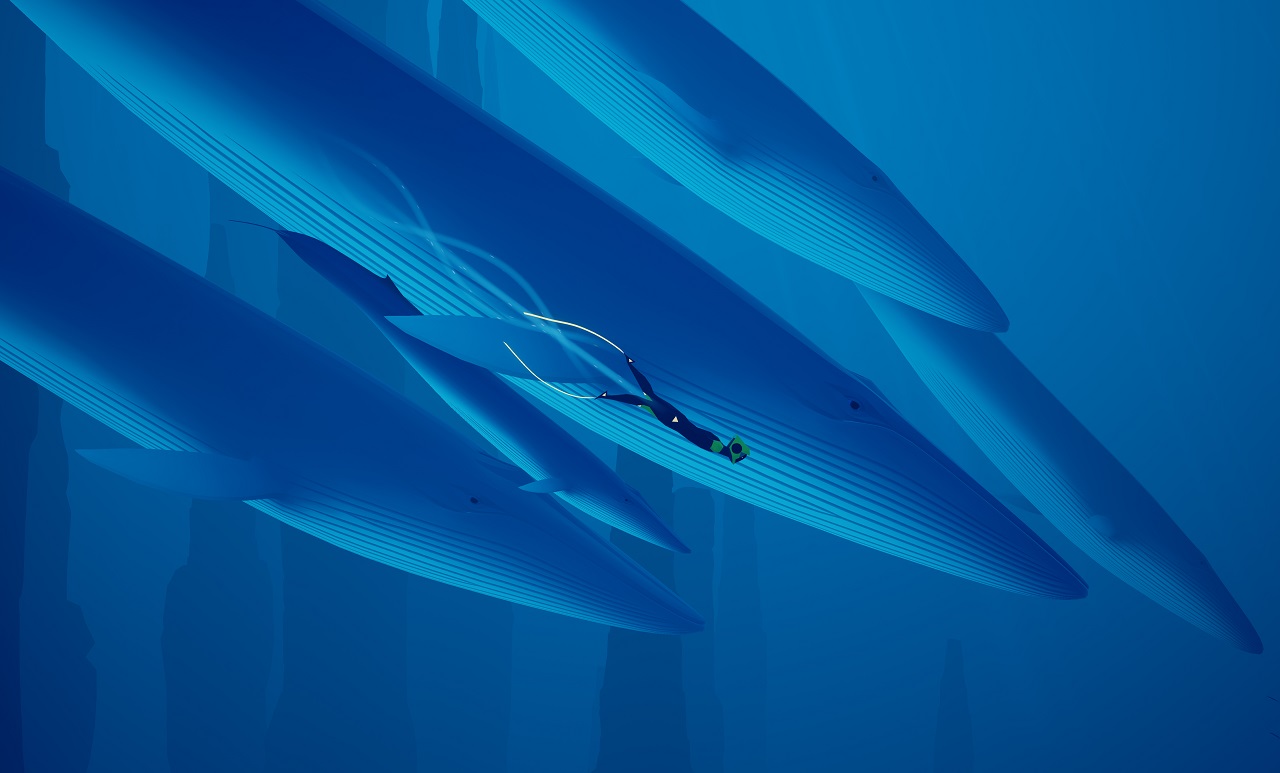
Giant Squid's unique authorial touch means Abzu is just as resplendent and as much of a joy to move through as Journey was. But by hewing so close to what made Journey special, Abzu feels like more of the same - only underwater this time - and its more profound moments fall a bit flat as a result. Taken on its own merits, Abzu is an enjoyable experience; a deep-sea dive meant to be soaked up rather than sped through. It's different enough to be worth the journey, but it's hard to shake that nagging feeling of deja vu.
Weekly digests, tales from the communities you love, and more
This game was reviewed on PS4.
More info
| Genre | Adventure |
| Description | The art director of Flower and Journey joins the latter's composer to create an ambient, underwater adventure like no other. |
| Platform | "PS4" |
| Release date | 1 January 1970 (US), 1 January 1970 (UK) |

David Roberts lives in Everett, WA with his wife and two kids. He once had to sell his full copy of EarthBound (complete with box and guide) to some dude in Austria for rent money. And no, he doesn't have an amiibo 'problem', thank you very much.
